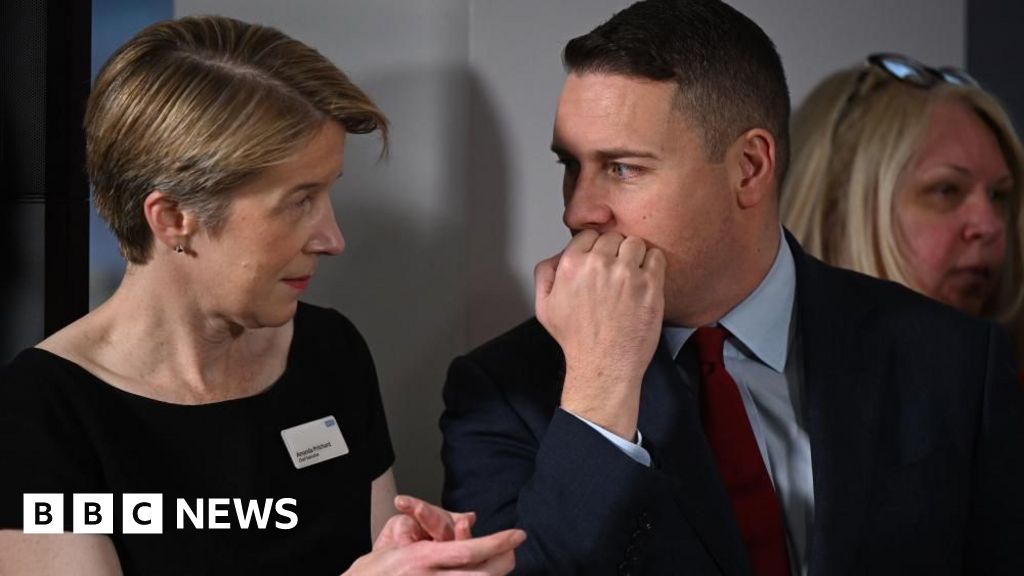Here is the result in plain text:
After Prime Minister Sir Keir Starmer’s announcement this week that NHS England (NHSE) is to be disbanded, the BBC looks at whether the changes present a new opportunity to improve patient safety within the NHS.
A hospital chief executive once described NHSE as “the biggest kiss up, kick down, organisation in public life.” The comment came to mind when Health Secretary Wes Streeting on Thursday said the scrapping of NHSE would “end the infantilisation of frontline NHS leaders.”
Time and again, NHS trusts have complained about the total control that NHSE, the body responsible for the day-to-day running of the health service in the country, exerted over their actions – the lack of freedom they had to either showcase their good work or respond to particular challenges.
You won’t find many who shed a tear over its demise, but there is concern as to what the re-organisation will mean for patient care.
But for many patients who have been failed by the NHS, there is a feeling that it was always more a part of the problem than the solution.
Protecting the reputation of the NHS brand often seemed to matter more than doing the right thing. Rarely has a major patient safety failure been uncovered and proactively admitted by NHSE.
Many of the patient safety scandals that I have covered – the deaths of people with learning disabilities and mental health problems at Southern Health, maternity failures in Shrewsbury and Telford, East Kent and Nottingham – were only revealed after the skilled and active campaigning of grieving and committed families, who felt compelled to turn to the media when other efforts had failed.
Consider, for instance, the poor care that mothers and babies received at the East Kent Hospitals University NHS trust. An independent review of its maternity services, published in 2022, found that between 2009 and 2020, at least 45 babies might have survived with better care.
The scandal was only uncovered by the tenacity of the Richford family, who lost baby Harry in 2017 following a series of avoidable errors.
But the inquiry revealed NHS England had been aware since 2013 that there were concerns about maternity services. Despite this, “the safety structures within NHSE did not see the trust as being a problem,” said the review.
Various efforts were made by NHSE to help the trust but they “failed to secure the necessary improvements in the services provided,” and so babies continued to die unnecessarily.
NHS England’s answer to the persistence of the problem, found the inquiry, was “a pattern of hiring and firing, initiated by NHSE.
It is clear that this approach was not just ineffective in East Kent, but wholly counterproductive. These decisions appear to have been made separately from any question of accountability.
Helen Gittos, who lost her daughter Harriet in 2014 at East Kent, is glad that NHSE is being scrapped.
“When families met with Wes Streeting to talk about maternity safety in the autumn, one of our messages was that NHSE was part of the problem, not part of the solution.
“It has been incredibly frustrating to see NHSE’s response to successive reviews of maternity services. It’s almost as if they haven’t read the reports,” she said.
The Maternity Safety Improvement Programme, led by NHSE, has not brought the kind of improvements “women and families so desperately need”, she added.
NHS England has published hundreds of independent investigations, at a cost of millions of pounds, into the care and treatment that patients have received.
Many of these have been welcomed by the families, providing necessary answers. Individual staff have been commended for their engagement with families, too.
But on too many occasions, it has proved an almighty struggle for them to act.
At the heart of many of the patient safety scandals uncovered in recent years has been a poor culture, an unwillingness to openly engage with patients. At the root of those problems has been poor behaviour in particular trusts, but repeatedly, families have complained that NHSE’s own secrecy has added to the problem.
While individual NHS trusts regularly publish their board papers well ahead of meetings, for years NHSE itself didn’t publish any board papers until the meeting was over – proof, said critics, of its lack of openness to scrutiny.
Its papers are now published – about two hours before a meeting.
Source link




